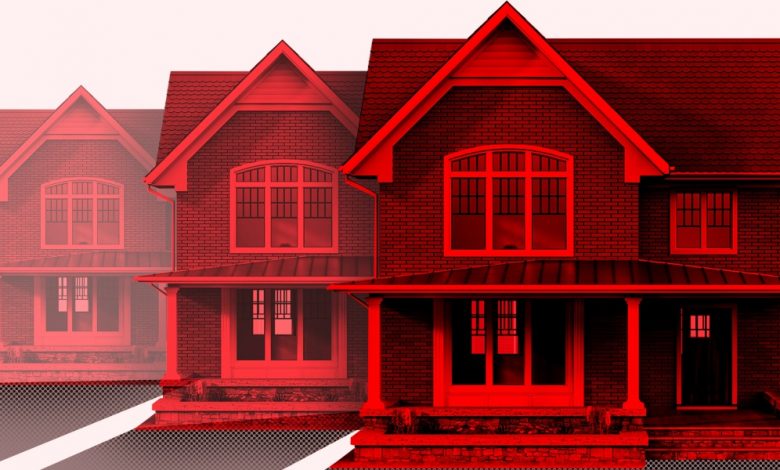The US housing market has just taken another hit

Already at the beginning of February Neel Kashkari, Minneapolis Fed President CNBC went on to clarify that easing financial conditions, including mortgage rates, which had fallen to 6.09% at the time, could hurt the Fed’s inflation fight if the economy warmed.
“The [U.S.] The housing market is showing signs of life again as mortgage rates have fallen again,” Kashkari said. “You’re right [loosening financial conditions] makes our job of balancing the economy harder. So, other things being equal, we would have to do more with our other tools.”
In the days following this interview, financial markets tightened and the average 30-year mortgage rate shot back up to 6.97% on Friday as investors realized improving economic data means the Federal Reserve is likely to keep the federal funds rate higher for longer than previously expected.
Real estate agents and builders celebrated a slight improvement in transaction numbers earlier this year, spurred by lower mortgage rates, but this rebound in mortgage rates means the US housing market could be in for an extended period of sluggishness in terms of activity.
Already, mortgage applications — a leading indicator of home sales volume — have started to decline again. In fact, this week the seasonally adjusted Mortgage Purchase Application Index hit its lowest level since 1995.
“Following a brief rebound in application activity in January, when mortgage rates fell to 6.2%, there has now been a three-week straight drop in applications as mortgage rates have risen 50 basis points over the past month,” wrote Joel Kan, who Deputy Chief Economist of the Mortgage Bankers Association, earlier this week. “Inflation, employment and economic activity data have signaled that inflation may not cool off as quickly as expected, which will continue to push interest rates higher.”
The economic shock from this recent hike in mortgage rates means the US housing market slump could continue and even deepen, posing the risk of the US economy slipping into recession.
On Tuesday, economists at the Federal Reserve Bank of Dallas warned that “the dangers identified in the US and German housing markets pose a vulnerability to the global outlook due to the size of those countries’ economies and significant cross-border financial spillovers.”
Historically, the economic impact of the Fed’s anti-inflation policy has always hit housing first. It works like this: The central bank starts to push interest rates up. Not long after, home sales plummet and builders begin to cut back. This reduces demand for both raw materials (like wood) and durable goods (like refrigerators). These economic contractions then quickly spread to the rest of the economy, theoretically helping to stem runaway inflation.
The question going forward is whether the housing market can absorb these economic shocks without spreading to the rest of the economy. On the one hand, private fixed investment in residential real estate (ie GDP in residential construction) has already experienced a sharp decline. On the other hand, homebuilder employment remains at its cycle peak as builders avoid layoffs as they work off the historical backlog they have accumulated during the pandemic housing boom.
While the rise in mortgage rates has led to an all-time decline in home sales, it hasn’t caused a home price crash. Through December, US single-family home prices, as measured by the seasonally adjusted Case-Shiller National Home Price Index (see chart above), are down 2.7% from their June 2022 peak. Excluding seasonal adjustment, national home prices are down 4.4%. (Remember that some regional housing markets have yet to experience a decline.)
“Housing foam has resurfaced since 2020, with signs of a pandemic housing boom spreading beyond the U.S. to other, mostly advanced, economies as a deep global housing slide continues,” economists at the Dallas Fed wrote earlier this week.
Looking ahead, Dallas Fed economists expect the US housing market to continue undergoing a “modest” home price correction. However, should the Federal Reserve become even more aggressive in its inflationary war, it could result in a “serious” correction in national house prices.
“While a modest housing correction remains the base case, the risk that tighter-than-expected monetary policy could trigger a tighter price correction in Germany and the US cannot be ignored,” Dallas Fed economists wrote earlier this week.
Want to stay up to date on the housing recession? Follow me on Twitter at @NewsLambert.
Learn how to navigate and build trust in your organization with The Trust Factor, a weekly newsletter exploring what leaders need to succeed. Login here.



